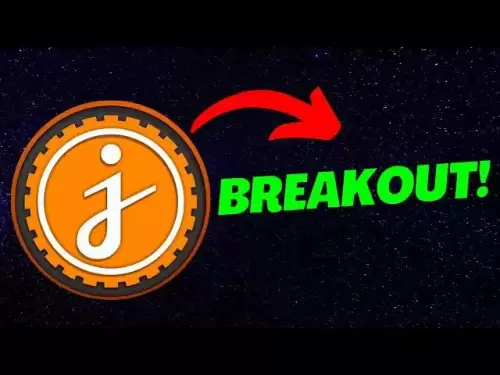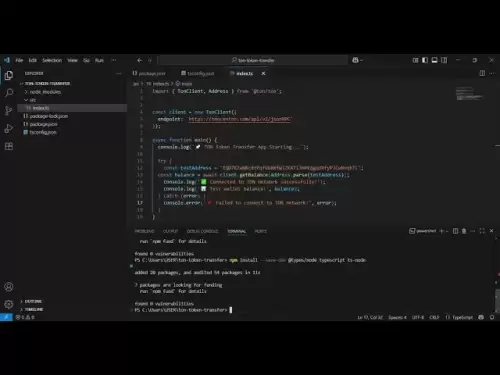-
 Bitcoin
Bitcoin $118,841.1054
1.02% -
 Ethereum
Ethereum $3,364.2689
7.44% -
 XRP
XRP $3.0337
3.93% -
 Tether USDt
Tether USDt $1.0004
0.04% -
 BNB
BNB $708.2059
2.49% -
 Solana
Solana $173.2385
5.74% -
 USDC
USDC $0.9999
-0.01% -
 Dogecoin
Dogecoin $0.2121
6.85% -
 TRON
TRON $0.3090
2.81% -
 Cardano
Cardano $0.7628
2.25% -
 Hyperliquid
Hyperliquid $46.8391
-2.08% -
 Stellar
Stellar $0.4537
0.15% -
 Sui
Sui $3.9529
-2.88% -
 Chainlink
Chainlink $16.6414
3.72% -
 Hedera
Hedera $0.2354
1.52% -
 Bitcoin Cash
Bitcoin Cash $499.1285
0.43% -
 Avalanche
Avalanche $22.6400
0.57% -
 Shiba Inu
Shiba Inu $0.0...01438
4.88% -
 UNUS SED LEO
UNUS SED LEO $8.8507
-0.64% -
 Toncoin
Toncoin $3.1498
2.35% -
 Litecoin
Litecoin $97.4954
1.21% -
 Polkadot
Polkadot $4.1541
1.50% -
 Monero
Monero $331.4406
-1.03% -
 Pepe
Pepe $0.0...01350
5.24% -
 Uniswap
Uniswap $8.9103
-5.01% -
 Bitget Token
Bitget Token $4.7540
4.51% -
 Dai
Dai $0.9999
-0.02% -
 Ethena USDe
Ethena USDe $1.0008
0.00% -
 Aave
Aave $322.3328
-1.63% -
 Bittensor
Bittensor $431.8026
-0.50%
Where can I find a list of all ETH ETF applications?
An Ethereum ETF allows investors to track ETH's price without owning the crypto, offering regulated exposure through traditional stock exchanges.
Jul 14, 2025 at 06:42 am
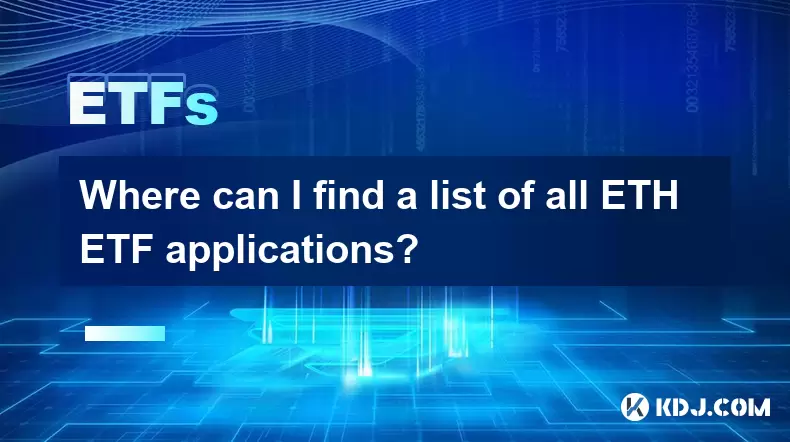
Understanding ETH ETFs and Their Importance
An Ethereum Exchange-Traded Fund (ETH ETF) is a financial product that allows investors to gain exposure to Ethereum's price movements without directly owning the cryptocurrency. These funds are traded on traditional stock exchanges and are subject to regulatory oversight, making them an attractive option for institutional and retail investors alike.
The introduction of ETH ETF applications has been a significant development in the crypto industry. These applications are submitted to financial regulators such as the U.S. Securities and Exchange Commission (SEC) by asset management firms seeking approval to launch an Ethereum-based ETF. The approval process is rigorous and involves legal, compliance, and market structure considerations.
Official Regulatory Websites as Primary Sources
To find a comprehensive list of all ETH ETF applications, the most reliable source is the official website of the relevant financial regulator. In the United States, the Securities and Exchange Commission (SEC) provides public access to all Securities Act registration statements, including ETF proposals.
- Visit the SEC’s EDGAR database.
- Use the search bar to look for filings under Form N-1A or S-1, which are commonly used for ETF registrations.
- Filter results by keywords such as “Ethereum,” “ETH,” or the name of the asset manager like BlackRock, Fidelity, or ARK Invest.
This method ensures you get real-time updates and detailed documentation regarding each application, including prospectuses, risk factors, and operational frameworks.
Third-Party Financial Data Platforms
Beyond government databases, several third-party financial platforms track ETF applications and approvals. These services aggregate data from regulatory filings and offer additional insights such as analysis, timelines, and expert commentary.
- Bloomberg ETF tracks proposed and approved crypto ETFs, offering real-time alerts and in-depth reports.
- ETF.com maintains a dedicated section for upcoming crypto-related ETFs, including Ethereum.
- Morningstar Direct is another professional-grade service that lists all ETF applications with detailed summaries and issuer profiles.
These platforms often provide user-friendly interfaces and allow users to filter by asset type, fund provider, and status (e.g., pending, approved, rejected).
Crypto News and Industry Aggregation Sites
Several crypto-focused news outlets and research firms compile and publish updated lists of ETH ETF applications. While these sources may not be official, they are useful for tracking developments and understanding market sentiment.
Websites such as:
- CoinDesk
- Cointelegraph
- The Block
- Coindata
These sites frequently publish articles summarizing recent filings, analyzing potential impacts, and quoting experts. Many also maintain live trackers or newsletters that highlight new applications and regulatory decisions.
Social Media and Community Forums
In the fast-moving world of cryptocurrency, social media channels and community forums can be surprisingly effective for staying up-to-date on ETH ETF news.
- Twitter/X: Follow official accounts of asset managers and crypto analysts who regularly post about new filings.
- Reddit: Subreddits like r/CryptoCurrency or r/ethfinance often share links to SEC filings and discuss implications.
- Discord and Telegram groups: Many crypto communities have dedicated channels where members post updates on ETF applications.
While these channels are informal, they can provide early insights and crowd-sourced interpretations of complex regulatory language found in filings.
Frequently Asked Questions
What is the difference between a spot ETH ETF and a futures-based ETH ETF?
A spot ETH ETF holds actual Ethereum tokens and reflects the real-time price of the asset. A futures-based ETH ETF invests in Ethereum futures contracts rather than the underlying asset, which can lead to tracking discrepancies over time due to contango or backwardation in the futures market.
Are all ETH ETF applications public?
Yes, all ETF applications filed with the SEC are public documents accessible via the EDGAR database. However, some firms may file confidentially at first before going public with their proposals.
Can non-U.S. investors access information on U.S.-based ETH ETF applications?
Absolutely. The SEC’s EDGAR database is publicly accessible worldwide. Additionally, international investors can use global financial platforms like Bloomberg or Morningstar to monitor U.S.-based ETF proposals.
Do ETH ETFs guarantee returns similar to holding Ethereum directly?
No. While ETH ETFs aim to mirror the price of Ethereum, factors such as management fees, tracking error, and tax implications can cause performance to diverge slightly from direct ownership of the digital asset.
Disclaimer:info@kdj.com
The information provided is not trading advice. kdj.com does not assume any responsibility for any investments made based on the information provided in this article. Cryptocurrencies are highly volatile and it is highly recommended that you invest with caution after thorough research!
If you believe that the content used on this website infringes your copyright, please contact us immediately (info@kdj.com) and we will delete it promptly.
- Dogecoin Cash, Inc.: Preparing for a Blockchain Revolution? A Deep Dive into the Latest Report
- 2025-07-17 16:30:12
- Payment Token Face-Off: XLM & Remittix Challenge XRP's Reign
- 2025-07-17 17:10:12
- Meme Coins, Dogecoin, and the Bull Run: What's Hot and What's Not
- 2025-07-17 18:10:12
- Bitcoin Blasts Past $123K: Bithumb Listings and Altcoin Mania!
- 2025-07-17 16:30:12
- Bitcoin Trading Volume in Q2 2025: A New York Minute
- 2025-07-17 14:30:12
- Bitcoin, SpacePay, and Your Cappuccino: The Future of Crypto Payments is Here!
- 2025-07-17 14:30:12
Related knowledge
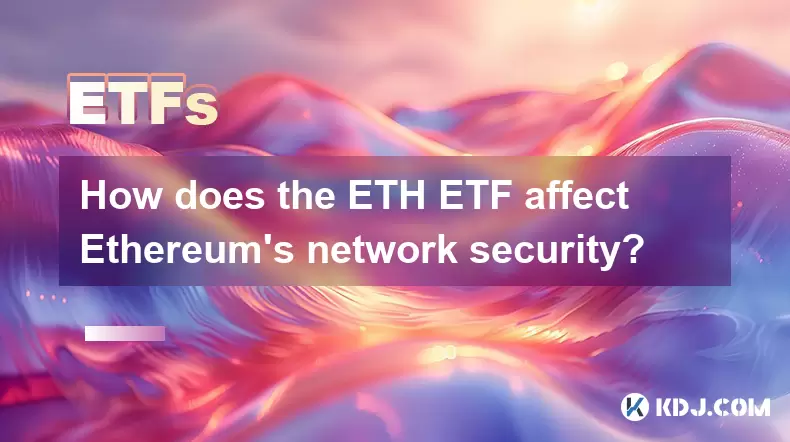
How does the ETH ETF affect Ethereum's network security?
Jul 17,2025 at 01:29pm
Understanding the ETH ETF ConceptAn Ethereum Exchange-Traded Fund (ETH ETF) is a financial product that allows investors to gain exposure to Ethereum ...
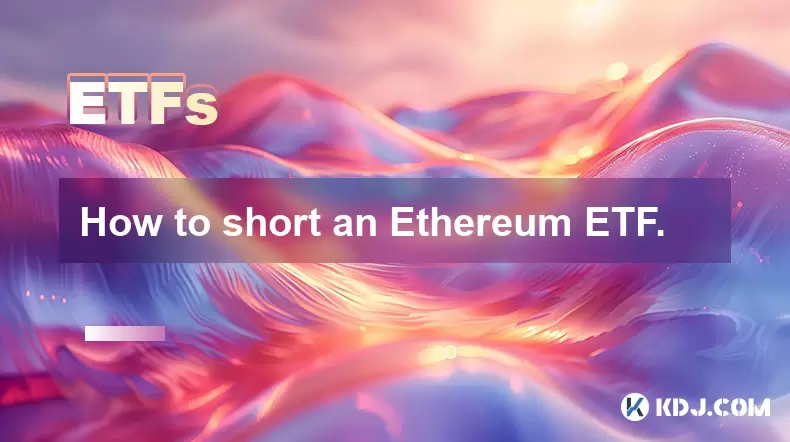
How to short an Ethereum ETF.
Jul 17,2025 at 05:43pm
Understanding the Concept of Shorting an Ethereum ETFShorting an Ethereum ETF involves betting against the price of Ethereum through a specific exchan...
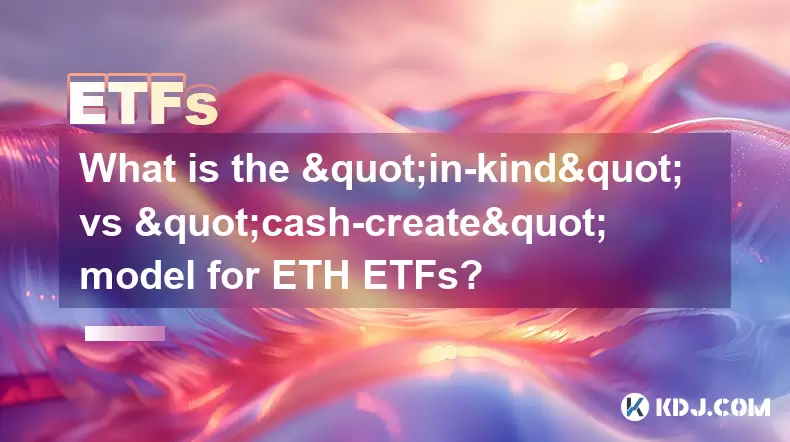
What is the "in-kind" vs "cash-create" model for ETH ETFs?
Jul 17,2025 at 04:35pm
Understanding the ETH ETF StructureExchange-traded funds (ETFs) for Ethereum (ETH) are structured to provide investors with exposure to ETH price move...
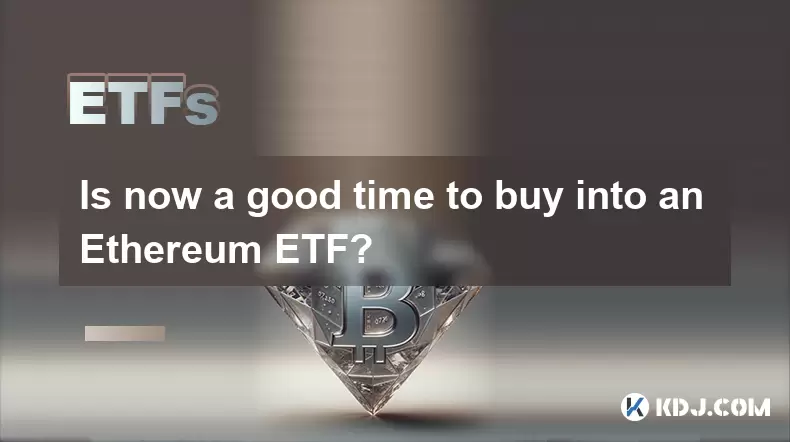
Is now a good time to buy into an Ethereum ETF?
Jul 17,2025 at 04:56pm
Understanding Ethereum ETFs and Their Role in InvestmentAn Ethereum ETF (Exchange-Traded Fund) is a financial product that allows investors to gain ex...
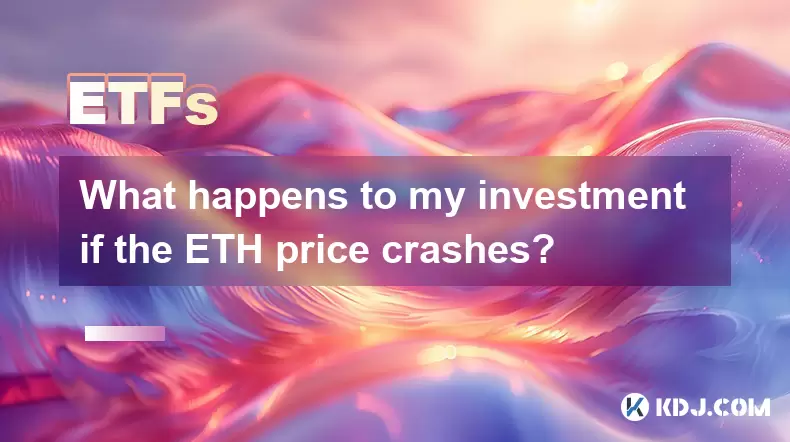
What happens to my investment if the ETH price crashes?
Jul 17,2025 at 01:22pm
Understanding ETH Price VolatilityEthereum (ETH) is one of the most widely traded cryptocurrencies, known for its high volatility. Price crashes are n...
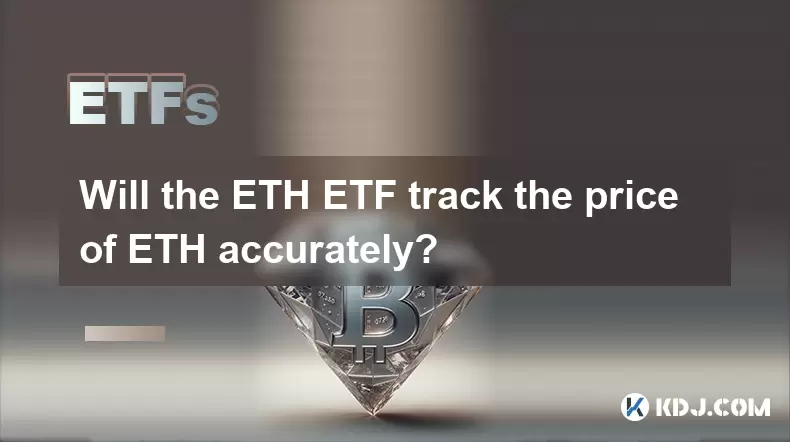
Will the ETH ETF track the price of ETH accurately?
Jul 17,2025 at 12:56pm
Understanding the Relationship Between ETH ETFs and Ethereum PricesAn Ethereum Exchange-Traded Fund (ETF) is designed to mirror the price movements of...

How does the ETH ETF affect Ethereum's network security?
Jul 17,2025 at 01:29pm
Understanding the ETH ETF ConceptAn Ethereum Exchange-Traded Fund (ETH ETF) is a financial product that allows investors to gain exposure to Ethereum ...

How to short an Ethereum ETF.
Jul 17,2025 at 05:43pm
Understanding the Concept of Shorting an Ethereum ETFShorting an Ethereum ETF involves betting against the price of Ethereum through a specific exchan...

What is the "in-kind" vs "cash-create" model for ETH ETFs?
Jul 17,2025 at 04:35pm
Understanding the ETH ETF StructureExchange-traded funds (ETFs) for Ethereum (ETH) are structured to provide investors with exposure to ETH price move...

Is now a good time to buy into an Ethereum ETF?
Jul 17,2025 at 04:56pm
Understanding Ethereum ETFs and Their Role in InvestmentAn Ethereum ETF (Exchange-Traded Fund) is a financial product that allows investors to gain ex...

What happens to my investment if the ETH price crashes?
Jul 17,2025 at 01:22pm
Understanding ETH Price VolatilityEthereum (ETH) is one of the most widely traded cryptocurrencies, known for its high volatility. Price crashes are n...

Will the ETH ETF track the price of ETH accurately?
Jul 17,2025 at 12:56pm
Understanding the Relationship Between ETH ETFs and Ethereum PricesAn Ethereum Exchange-Traded Fund (ETF) is designed to mirror the price movements of...
See all articles
























